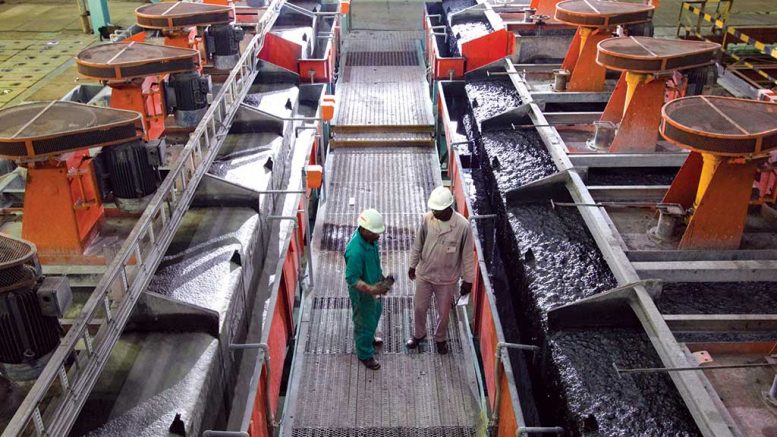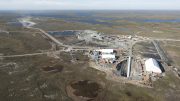After months of outcry from foreign mining companies active in the Democratic Republic of the Congo (DRC), the new DRC mining code proposed in March was signed into law with no adjustments on June 8, effectively raising taxes and increasing carried ownership by the DRC government in major mining projects in the country.
The new mining code boosts royalties on copper to 3.5% from 2%, on gold to 3.5% from 2.5%, and may increase royalties on cobalt to 10% from 2%, if cobalt is deemed a “strategic mineral” — and it’s hard to see why it wouldn’t be.
There is also a new 50% tax on so-called superprofits, which is defined as income realized when commodity prices rise 25% above levels in a project’s bankable feasibility study. The tax on regular profits has increased to 35%, from 30%.
There are also provisions to double to 10% the DRC government’s free share in mining projects and reduce the period during which contract stability is guaranteed to five years, from the 10 years stipulated in the previous mining law introduced in 2002.
There are also changes to mining-title applications subject to an environmental certificate by the Agence Congolaise de l’Environnement, which will include a requirement that 0.3% of a company’s turnover is spent on local development.
Of all these changes, the halving of the stability clause to five years and the supertax probably rankle miners the most.
It’s still unclear whether any of these new terms will be altered by legal proceedings threatened against the DRC government in recent months by mining companies active in the country, such as Glencore and Randgold Resources, but it’s more likely these are idle threats.
However, the mining code changes put the DRC in line with many other mining nations in west and central Africa, such as Cameroon, Ghana, Guinea and Tanzania — even if the political risk in the DRC is substantially higher.
With copper demand on the rise in the dawning era of metals-hungry electric vehicles, and Chinese miners and metal companies knocking on the door, the DRC government appears to have the upper hand against Western mining companies. The DRC is Africa’s largest copper producer and the world’s largest cobalt producer, as well as a significant gold and diamond producer. Mining represents about a quarter of the country’s gross domestic product.
Within days of the new mining code being adopted, Glencore settled its legal dispute with DRC state-owned mining company Gecamines over Kamoto Copper Co. (KCC), which is set to become the DRC’s largest copper and cobalt mine. KCC is owned by Katanga Mining (75%) and Gecamines (25%), while Glencore in turn controls 86% of Katanga. Gecamines had been moving to shut down KCC, claiming Glencore failed to address a capital shortfall at the subsidiary.
Instead, Glencore has agreed to contribute billions of dollars of revenue to the government over the next decade, prompting Gecamines president Albert Yuma to say during the DRC Mining Week conference in Lubumbashi that for the first time, he thinks his company, by year-end, will be able to pay profit tax and distribute dividends to its shareholders.
He said that in the 2020s, the profit taxes expected by the Congolese state should climb to US$3.5 billion, with the expected dividends for Gecamines to exceed $2 billion.
Kamoto’s total debt stood at US$9.2 billion at the end of December, resulting in a US$4.2-billion shortfall in working capital that Glencore and Katanga were required by Congolese law to resolve. The new agreement involves a US$5.6-billion, debt-to-equity swap for Katanga Mining, which reduces Kamoto’s debt load, plus a US$150-million, one-time payment to Gecamines and waiver of some mining rights.
“We wished to engage the re-evaluation of all our partnerships to create conditions of exploitation that are actually profitable for all: the foreign investors, Gecamines and the Congolese state,” Yuma said. “We have started with the most important among them,” he said, and added that companies “are seriously mistaken” if they think they can continue to operate unchanged joint ventures.
Glencore has also quietly resumed royalty payments to Israeli billionaire Dan Gertler related to copper and cobalt assets in the DRC. The U.S. government imposed harsh sanctions on Gertler in December, alleging corruption in his dealings in the DRC. But Glencore is getting around that hurdle — presumably with the U.S. government’s tacit approval — by paying Gertler in euros instead of U.S. funds. Payments owed by Glencore to Gertler are an estimated US$130 million annually.



Be the first to comment on "Editorial: New DRC mining code comes into force"